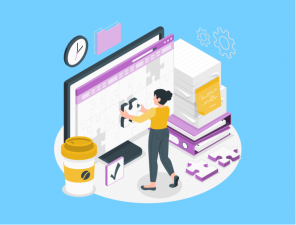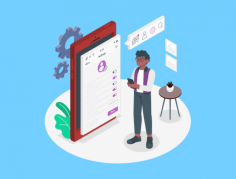- System Features
- FAQ
- Blog
- Contact Us

Job rotation is the systematic assignment of employees from one job to another within the organization in order to achieve various human resources goals such as directing employees, training employees, increasing career development, and preventing employee boredom or burnout while doing the job. The aim here is for the personnel to experience all the responsibilities undertaken by the organization over time and thus to develop, rather than learning only a part of the job in a limited area.
What Does Job Rotation Mean?
Job rotation is the practice of moving employees between jobs in an organization. These rotations are predominantly lateral, meaning they occur between jobs at the same level and are not considered promotions. In addition, the personnel participating in the job rotation are returned from their temporary place to their original place after a while. Key benefits of job rotation: starting a new job is exciting and challenging for staff, reduces boredom, has positive effects on motivation, working in different jobs is a great way to acquire new knowledge and competencies, and helps assess person-job fit.
How is Job Rotation Done?
Preparation before job rotation is a very important step. Before the job rotation, the causes and expected results should be well analyzed and clearly revealed. After the target has been determined clearly, clearly and measurably, the scope, cost and stages of the implementation should also be determined.
Successful job rotation is directly proportional to whether employees have the ability to adapt easily to innovations and changes. Since job rotation also concerns other employees in the organization, all levels of the organization should be informed.
What Are the Advantages and Disadvantages of Job Rotation?
Like all practices put forward by the HR department, the practice of job rotation has measurable positive and negative results.
What are the Advantages of Job Rotation?
1- The employee, who is shifted to a different task area from his/her own job during the job rotation process, has the chance to learn what is going on in the organization outside of his/her own department. In this way, an increase in experience and competencies is expected.
2- For an employee who does the same job every day, working in a different job is like a vacation. Getting rid of monotony, learning and experiencing new things contributes positively to the motivation of the employee.
3- Talents are competencies that are discovered over time. The chance of discovering one's talents increases by seeing the jobs that require different areas of expertise.
4- Every rotation means a new experience. In this way, the experience that the employee will need to progress faster in his future career is gained.
5- Increases flexibility among employees and improves skill sets.
6- It increases the work efficiency and productivity of the employee.
7- It strengthens the communication between the employees. It supports the employee to get to know the corporate culture closely and develop a sense of belonging.
What are the Disadvantages of Job Rotation?
1- The employee who takes on new tasks during the job rotation process needs time to get used to this new task. In this process, which we can also call the novice phase, there is a high probability of a decrease in productivity.
2- If job rotation is done without the consent of the employee, the motivation of the employee drops seriously. Decreased motivation can also bring with it negativities such as job dissatisfaction and alienation from work.
3- In cases where the personnel waiting for promotion are included in the job rotation, the employee may see this situation as a waste of time and this brings dissatisfaction with it.
While planning job rotation, changes are made in the organizational structure, albeit temporarily. Support can be obtained from HR software so that the entire organization is not adversely affected by planning. In this context, Stafik offers many modules and services to meet the needs of HR departments during the job rotation process.


























